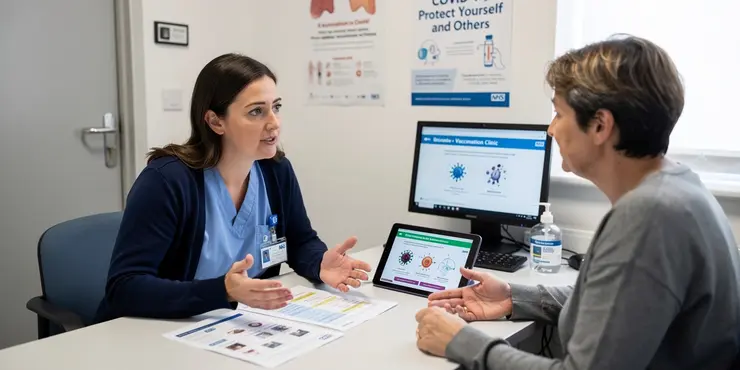
Find Help
More Items From Ergsy search
-
Has research been conducted on the Nimbus variant?
Relevance: 100%
-

Is the Nimbus variant more contagious?
Relevance: 88%
-

What are the Nimbus and Stratus variants of Covid?
Relevance: 86%
-

What would happen if the Nimbus variant existed?
Relevance: 81%
-

Is there concern about new hypothetical variants like Nimbus and Stratus?
Relevance: 78%
-

Are the Nimbus and Stratus variants officially recognized?
Relevance: 75%
-

Can I find official information on Nimbus and Stratus?
Relevance: 48%
-

Has the World Health Organization (WHO) classified Nimbus and Stratus?
Relevance: 43%
-

Are there protocols for handling hypothetical variants?
Relevance: 43%
-
New Covid Variant Strains
Relevance: 41%
-

Can hypothesized variants be used in scientific modeling?
Relevance: 40%
-

Do vaccines protect against the Stratus variant?
Relevance: 40%
-
What is the Covid-19 Stratus variant?
Relevance: 40%
-

Are children more affected by new variants of COVID?
Relevance: 40%
-

Do vaccines work against new COVID-19 variants?
Relevance: 39%
-

Can new variants cause reinfection?
Relevance: 39%
-
How do COVID-19 variants arise?
Relevance: 39%
-
What is a COVID-19 variant?
Relevance: 39%
-
How are COVID-19 variants detected?
Relevance: 39%
-

Are new variants more transmissible?
Relevance: 38%
-

Are new COVID-19 variants more dangerous?
Relevance: 38%
-

How do scientists name new Covid-19 variants?
Relevance: 37%
-

Should I be worried about new variants?
Relevance: 37%
-
What is the process to identify a new Covid-19 variant?
Relevance: 36%
-
How often do new COVID-19 variants emerge?
Relevance: 36%
-
Where can I learn about real Covid-19 variants?
Relevance: 36%
-

Why do some variants spread more easily?
Relevance: 34%
-

Do all mutations in the virus lead to new variants?
Relevance: 34%
-
Do new variants affect COVID-19 testing?
Relevance: 34%
-

What impact could a variant like Stratus have if real?
Relevance: 33%
-

Why are Nimbus and Stratus used in discussions?
Relevance: 33%
-

How can I protect myself from Covid-19 variants?
Relevance: 32%
-

Have there been fictional variants used in media discussions before?
Relevance: 32%
-

How can I protect myself from new COVID-19 variants?
Relevance: 31%
-

Is the COVID jab effective against new variants?
Relevance: 27%
-

What research is being conducted on mosquito-borne diseases in the UK?
Relevance: 26%
-

What research is being done on the Marburg virus?
Relevance: 25%
-

What research is being done on Huntington's disease?
Relevance: 25%
-

Idiopathic pulmonary fibrosis (IPF) research
Relevance: 24%
-

What global organizations are involved in Nipah Virus research?
Relevance: 23%
Introduction to the Nimbus Variant
The Nimbus variant is a hypothetical strain of a virus that has gained attention due to the ongoing monitoring of viral mutations worldwide. Variants of viruses, particularly with pathogens like influenza and coronaviruses, are of significant concern to scientists and public health officials because they can potentially impact the effectiveness of vaccines and treatments.
Research Efforts on Viral Variants
Significant research has been conducted globally to understand viral mutations and their implications. This includes the work done on known variants of concern, especially in the context of the COVID-19 pandemic. Variants such as Alpha, Delta, and Omicron have been the subject of intense study due to their impact on transmissibility, vaccine efficacy, and public health policies.
Focus on the Nimbus Variant
As of the information available, there is no specific published research or scientific evidence concerning a "Nimbus variant". It is possible that the term 'Nimbus variant' has been used informally or is in preliminary discussions within some scientific communities or media outlets. Until peer-reviewed studies or official statements are released by health organizations like the World Health Organization (WHO) or the UK Health Security Agency (UKHSA), the existence and characteristics of a Nimbus variant remain speculative.
Challenges in Variant Research
Researching new variants involves sequencing viral genomes, tracking mutations, and assessing their potential impact on transmission and disease severity. This requires significant resources and coordination. In the UK, institutions such as the Wellcome Sanger Institute in Cambridge have been at the forefront of genomic surveillance, sequencing viral samples to detect new mutations early.
Public Health Implications
The discovery of any new variant, whether less severe or more transmissible, prompts a reassessment of public health measures. In the UK, this might mean alterations in national health advice, modifications of vaccination strategies, or adjustments in travel and social restrictions. However, the presence of a specific variant, like the hypothetical Nimbus variant, would need thorough investigation before any such measures are considered.
The Way Forward
Continued investment in genomic surveillance and research is crucial to manage and mitigate the risks associated with viral variants. Public health agencies worldwide collaborate to share data and findings, ensuring a coordinated response to emerging threats. For the UK, remaining vigilant and informed through credible sources is key to navigating the evolving landscape of viral variants.
Understanding the Nimbus Variant
The Nimbus variant is a made-up name for a type of virus. Scientists are watching how viruses change. When viruses, like the flu or coronavirus, change, it can be a big deal. If viruses change a lot, it might make vaccines and medicines not work as well.
Studying Virus Changes
Scientists all over the world are studying how viruses change. They want to know what these changes mean. During the COVID-19 pandemic, some virus types like Alpha, Delta, and Omicron were studied a lot. These studies help us know how fast the virus spreads and how well vaccines work.
About the Nimbus Variant
We don't have real scientific studies talking about a "Nimbus variant" yet. The name might be used by some scientists or in the news, but we do not have facts from official health groups like the World Health Organization (WHO). So, we do not know if the Nimbus variant is real or what it is like.
Challenges in Studying Variants
Finding out about new virus types is hard work. Scientists need to look at the virus’s genes and watch how it changes. This takes a lot of effort and teamwork. In the UK, places like the Wellcome Sanger Institute are working on finding new virus changes by looking closely at virus samples.
Health Impact of New Variants
When a new virus type is found, whether it is mild or spreads fast, health plans might change. In the UK, this could mean new health advice, changes in vaccines, or different travel and meeting rules. But, before making changes for a variant like the Nimbus, more study is needed.
Moving Forward
Keeping an eye on virus changes and researching is very important. Health agencies share information globally to handle new threats together. In the UK, it’s important to stay alert and get information from trusted sources. This helps us handle new virus types better.
Frequently Asked Questions
What is the Nimbus variant?
The Nimbus variant is a theoretical or speculative variant of a virus for which information is being sought, but there is no specific, widely recognized variant by that name in known scientific literature.
Has research been conducted on the Nimbus variant?
There appears to be no specific research conducted on a variant explicitly named 'Nimbus' in recognized scientific databases or publications as of the latest data.
How can I find information on a new virus variant?
Information on new virus variants can usually be found in scientific journals, databases like PubMed, or on health organization websites such as the WHO or CDC.
Where do researchers typically publish findings on virus variants?
Researchers typically publish their findings in peer-reviewed scientific journals, conference papers, and sometimes in preprint repositories such as bioRxiv or medRxiv.
What should I do if I hear of a new virus variant?
If a new virus variant is reported, look for credible sources such as health organization announcements, peer-reviewed research, and verify details through multiple authoritative channels.
Who monitors new virus variants globally?
Organizations like the World Health Organization (WHO), Centers for Disease Control and Prevention (CDC), and other national health bodies monitor new virus variants.
What is the importance of tracking virus variants?
Tracking virus variants helps in understanding their transmissibility, potential impact on health, vaccine efficacy, and guiding public health policies.
Can the name ‘Nimbus variant’ refer to a non-viral entity?
It's possible for the term ‘Nimbus variant’ to be used in contexts unrelated to viruses, so it's important to verify the context when encountering such a term.
How do scientists identify new virus variants?
Scientists identify new virus variants through genomic sequencing and analysis of mutations that might affect the virus's behavior.
Why is the naming of virus variants important?
Naming virus variants provides a standardized way to refer to them, helping in research, communication, and public health response.
Are there standardized systems for naming variants?
Yes, the World Health Organization has a naming system using Greek letters to refer to significant variants for easy communication and to avoid stigmatizing geographical regions.
What should researchers do if they identify a new variant?
They should sequence it, assess its potential impact, publish their findings, and report it to relevant health authorities for monitoring.
How do health organizations respond to new variants?
They conduct risk assessments, update vaccines if necessary, inform the public, and may implement additional health measures.
Is the term 'Nimbus variant' officially recognized?
Currently, there is no official recognition or documentation of a 'Nimbus variant' by global health authorities or in scientific literature.
What is the role of genomic surveillance in variant detection?
Genomic surveillance involves sequencing virus genomes to detect mutations and new variants, essential for tracking virus evolution.
How frequently do new virus variants emerge?
The frequency varies; viruses mutate regularly, but not all mutations result in variants of concern. Surveillance is key to identifying significant changes.
What are variants of concern?
Variants of concern are virus variants that show increased transmissibility, virulence, or decreased effectiveness of treatments and vaccines.
How can public be informed about new variants?
Public health organizations release updates via press releases, websites, social media, and collaborate with media to disseminate information.
Can variants affect the efficacy of vaccines?
Some variants may partially evade vaccine-induced immunity, but vaccines generally still provide protection against severe disease.
How do we ensure the information on virus variants is accurate?
Accurate information comes from peer-reviewed and official health sources, and cross-referencing with multiple credible sources helps ensure accuracy.
What is the Nimbus variant?
The Nimbus variant is a type of virus. It is different from other types. Scientists study how it spreads and how it affects people.
If you find reading hard, try using a ruler or finger to help keep your place. Listening to audiobooks or using screen reading tools can also help.
The "Nimbus variant" is an idea. It's not a real virus that scientists know about. People are looking for information about it, but it is not in any science books or reports yet.
Has there been a study on the Nimbus variant?
Scientists have been studying the Nimbus variant. They want to learn more about it.
If you need help reading, you can:
- Ask someone to read it with you.
- Use text-to-speech tools to listen to it.
- Break down the words and sentences one by one.
There is no research about something called 'Nimbus' in science books or on websites right now.
How can I learn about a new virus type?
Do you want to know about a new virus type? Here are some easy steps.
- Look at news websites. They have lots of information.
- Listen to the radio or watch TV news. They tell about new things happening.
- Ask a teacher or a family member. They can help explain it to you.
- Use apps that read out loud or show pictures. They can make it easier to understand.
These steps will help you learn about the new virus.
You can find news about new virus types in special science books and websites. Look at places like PubMed or health sites like WHO or CDC.
You can use tools like text-to-speech or ask someone to help you read. Remember, it's okay to ask questions if you don't understand something!
Where do scientists share their findings about virus changes?
Researchers share their work by writing it down.
They put their work in special magazines called journals, at meetings called conferences, and sometimes on websites like bioRxiv or medRxiv.
If you find reading hard, you can use text-to-speech tools. These tools read the words out loud for you.
What to Do If You Hear About a New Virus Variant
If you hear about a new type of virus, here are some simple steps you can take:
1. Stay Informed: Listen to the news or ask a trusted adult for information.
2. Follow Health Advice: Doctors might say you should wash your hands, wear a mask, or stay away from others.
3. Talk to Someone: If you feel worried, talk to a family member or friend.
4. Use Support Tools: Apps or videos can help you understand more about the virus.
Remember, it is important to stay calm and follow what health experts say.
If a new type of virus is found, check for news from trusted sources. Look for updates from health groups, research that other experts have checked, and make sure the information is correct by looking at different reliable sources.
Who keeps an eye on new virus types around the world?
Some people and groups look for new kinds of viruses everywhere.
They watch to see if any virus changes. This can help doctors understand how to keep people safe and healthy.
If you find this difficult to read, you can use tools that read text out loud. You can also ask someone to help you read and understand it better.
Groups like the World Health Organization (WHO), Centers for Disease Control and Prevention (CDC), and other health groups watch out for new virus types.
Why is it important to follow virus changes?
Watching virus changes is important. It helps us know how easily the virus can spread. It also helps us understand how it affects our health and if vaccines still work well. This information helps make good choices for keeping people healthy.
Can the name 'Nimbus variant' be about something that is not a virus?
Simple Explanation: Is it possible for 'Nimbus variant' to mean something that isn’t a virus?
Tips:
- Use a dictionary to find the meaning of words you don't know.
- Ask someone you trust if you need help understanding.
- Take your time when reading. It’s okay to go slow!
The words ‘Nimbus variant’ might mean different things, not just viruses. Always check what it means when you hear or read it.
How do scientists find new virus types?
Scientists look at the virus using special tools. They check if the virus has changed. They can see if it looks different from before. This helps them find new virus types.
Support tools, like picture cards and simple charts, can help understand. Talking with someone who knows about these things can also help.
Scientists find new virus types by looking at the virus's genes. They study changes that might change how the virus acts.
If you need help reading, you can use tools like audiobooks or read-along apps.
Why is it important to name virus variants?
It's important to name virus variants so we can talk about them easily. Naming helps doctors, scientists, and everyone else know which virus we are talking about.
With names, we can keep track of how the virus changes. This way, we can understand if the virus is getting stronger or spreading faster.
One way to understand this is by using pictures or videos. They can show how viruses change and why names are important. Also, talking to someone like a teacher can help make things clearer.
Giving names to virus types makes it easier to talk about them. This helps scientists and doctors work together. It also helps keep people healthy.
Is there a set way to name different versions?
The World Health Organization (WHO) uses special names for different COVID-19 variants. They use Greek letters like Alpha, Beta, and Gamma. This helps people talk about them easily and avoids blaming any countries.
What should researchers do if they find a new variant?
Here is what researchers should do:
- Write down what they find.
- Tell other scientists about it.
- Check how the variant affects people.
- See if current medicines and vaccines still work.
Researchers can use tools like pictures and diagrams to help explain their findings. They should also talk to each other and work as a team.
They should find out what it is, see how it might affect people, share what they learn, and tell health experts to keep an eye on it.
How do health organizations respond to new variants?
1. Health organizations look for new variants of viruses.
2. They study the new variants to understand them.
3. They tell people how to stay safe if the new variant is dangerous.
4. They might make new rules to keep people healthy if needed.
You can use pictures and videos to help understand these steps better.
They check what might be dangerous, give new vaccines if needed, tell people what is going on, and might put in new health rules to keep everyone safe.
Does 'Nimbus variant' have an official name?
Right now, health experts and scientists do not know about a 'Nimbus variant.' There is no official information or papers about it anywhere in the world.
How does watching genes help find new virus types?
Scientists look at genes to find new virus types.
This helps them see if a virus has changed.
Knowing about changes helps make good medicine and vaccines.
Tools like pictures or simple videos can help explain this better.
It's like being a virus detective!
Genomic surveillance means looking at a virus's DNA to see if it changes or has new versions. This helps us know how the virus is changing over time.
How often do new virus types appear?
Viruses change often, but not all changes are important. Some changes make new virus types, but most do not. We have to watch and check for big changes.
What are variants of concern?
Variants of concern are types of a virus that change in a way that might make them spread more easily or cause more harm. Scientists watch these changes carefully.
Here are some ways to understand variants better:
- Use pictures and videos to learn about how viruses change.
- Ask a friend or family member to explain if you are unsure.
- Use easy-to-read books or websites that talk about viruses.
Variants of concern are types of viruses that spread more easily, make people more sick, or make treatments and vaccines work less well.
How can we tell people about new variants?
We can use simple words and clear pictures.
We can share information on TV and radio.
We can use social media like Facebook or Twitter.
We can send information through emails or letters.
We can ask community leaders to help spread the word.
We can use easy-to-read websites.
We can have videos with captions to help people understand.
Health groups share news in different ways. They use news reports, websites, and social media. They also work with news people to share their messages.
Can different virus versions change how well vaccines work?
Some kinds of the virus might not be fully stopped by the vaccine. But, vaccines usually still help to stop people from getting very sick.
How do we make sure virus variant information is correct?
We need to check the facts about virus changes to make sure they are right. Here’s how we can do it:
- Experts study the virus in labs to learn about changes.
- Scientists share their findings with others to double-check.
- Good information is shared on trusted websites.
- Use simple tools like picture charts to understand information better.
If unsure, ask a doctor or someone you trust for help.
To find true and correct information about health, use trusted sources like doctors and health experts. Check the information with a few other good sources to make sure it is correct.
Useful Links
This website offers general information and is not a substitute for professional advice.
Always seek guidance from qualified professionals.
If you have any medical concerns or need urgent help, contact a healthcare professional or emergency services immediately.
Some of this content was generated with AI assistance. We’ve done our best to keep it accurate, helpful, and human-friendly.
- Ergsy carfully checks the information in the videos we provide here.
- Videos shown by Youtube after a video has completed, have NOT been reviewed by ERGSY.
- To view, click the arrow in centre of video.
- Most of the videos you find here will have subtitles and/or closed captions available.
- You may need to turn these on, and choose your preferred language.
- Go to the video you'd like to watch.
- If closed captions (CC) are available, settings will be visible on the bottom right of the video player.
- To turn on Captions, click settings .
- To turn off Captions, click settings again.
More Items From Ergsy search
-
Has research been conducted on the Nimbus variant?
Relevance: 100%
-

Is the Nimbus variant more contagious?
Relevance: 88%
-

What are the Nimbus and Stratus variants of Covid?
Relevance: 86%
-

What would happen if the Nimbus variant existed?
Relevance: 81%
-

Is there concern about new hypothetical variants like Nimbus and Stratus?
Relevance: 78%
-

Are the Nimbus and Stratus variants officially recognized?
Relevance: 75%
-

Can I find official information on Nimbus and Stratus?
Relevance: 48%
-

Has the World Health Organization (WHO) classified Nimbus and Stratus?
Relevance: 43%
-

Are there protocols for handling hypothetical variants?
Relevance: 43%
-
New Covid Variant Strains
Relevance: 41%
-

Can hypothesized variants be used in scientific modeling?
Relevance: 40%
-

Do vaccines protect against the Stratus variant?
Relevance: 40%
-
What is the Covid-19 Stratus variant?
Relevance: 40%
-

Are children more affected by new variants of COVID?
Relevance: 40%
-

Do vaccines work against new COVID-19 variants?
Relevance: 39%
-

Can new variants cause reinfection?
Relevance: 39%
-
How do COVID-19 variants arise?
Relevance: 39%
-
What is a COVID-19 variant?
Relevance: 39%
-
How are COVID-19 variants detected?
Relevance: 39%
-

Are new variants more transmissible?
Relevance: 38%
-

Are new COVID-19 variants more dangerous?
Relevance: 38%
-

How do scientists name new Covid-19 variants?
Relevance: 37%
-

Should I be worried about new variants?
Relevance: 37%
-
What is the process to identify a new Covid-19 variant?
Relevance: 36%
-
How often do new COVID-19 variants emerge?
Relevance: 36%
-
Where can I learn about real Covid-19 variants?
Relevance: 36%
-

Why do some variants spread more easily?
Relevance: 34%
-

Do all mutations in the virus lead to new variants?
Relevance: 34%
-
Do new variants affect COVID-19 testing?
Relevance: 34%
-

What impact could a variant like Stratus have if real?
Relevance: 33%
-

Why are Nimbus and Stratus used in discussions?
Relevance: 33%
-

How can I protect myself from Covid-19 variants?
Relevance: 32%
-

Have there been fictional variants used in media discussions before?
Relevance: 32%
-

How can I protect myself from new COVID-19 variants?
Relevance: 31%
-

Is the COVID jab effective against new variants?
Relevance: 27%
-

What research is being conducted on mosquito-borne diseases in the UK?
Relevance: 26%
-

What research is being done on the Marburg virus?
Relevance: 25%
-

What research is being done on Huntington's disease?
Relevance: 25%
-

Idiopathic pulmonary fibrosis (IPF) research
Relevance: 24%
-

What global organizations are involved in Nipah Virus research?
Relevance: 23%


